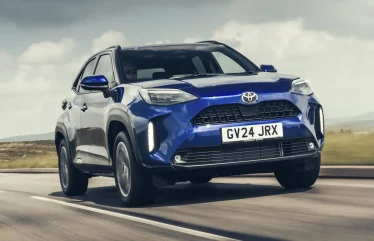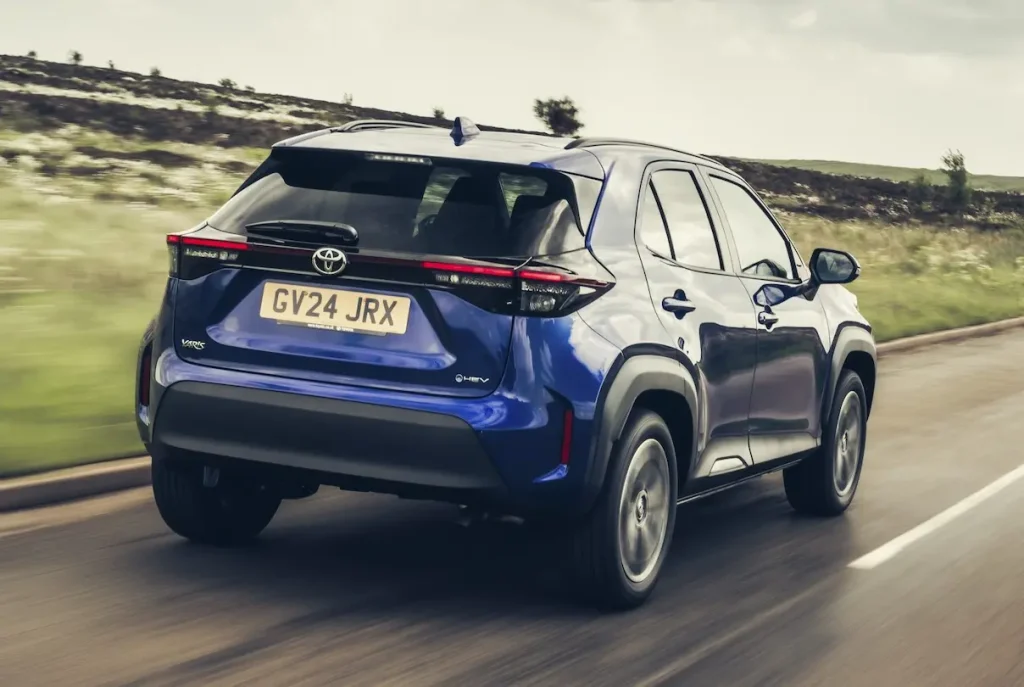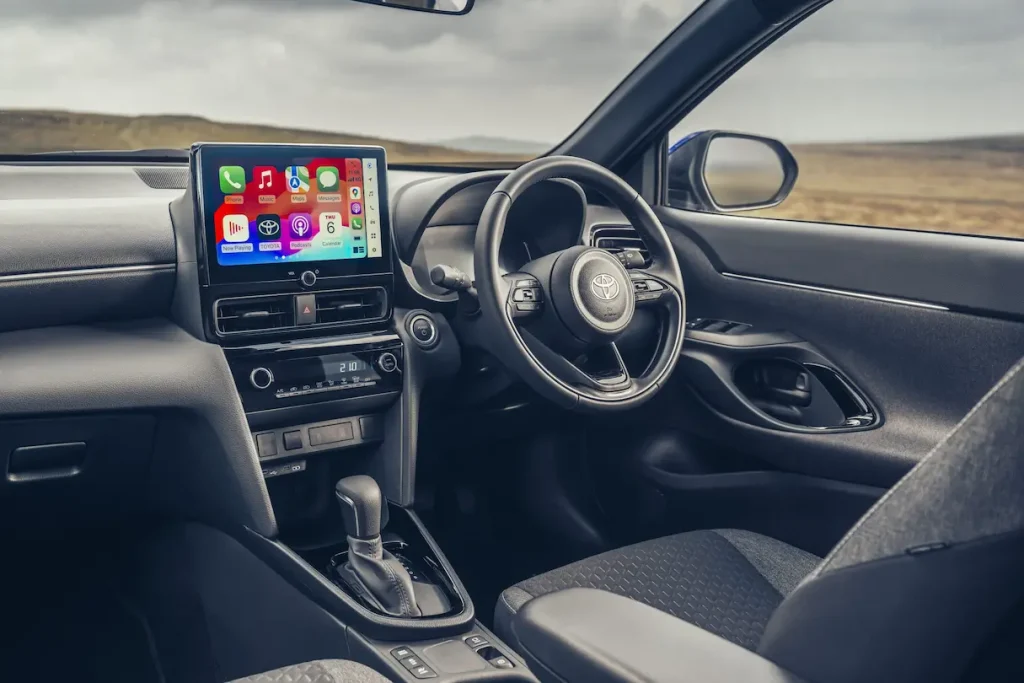
The Toyota Yaris Cross is not, as the name might suggest, merely a more rugged (or angry) version of the Yaris supermini, but instead an entirely separate model, competing in the ferociously crowded B-SUV segment. The Yaris Cross made its debut in 2021, and Toyota has now introduced an updated version.
Performance and drive
One of the major upgrades is the addition of a new, 130hp hybrid powertrain – however, this is only available with the Premiere Edition and GR Sport equipment grades. The rest of the range, like our Design test car, comes with the existing 116hp hybrid – which on the plus side means better fuel economy and lower CO2 emissions under official testing. It doesn’t really feel underpowered either, although there is quite a lot of noise when accelerating, despite changes Toyota says have been made with the update to reduce noise and vibration.
We found the Yaris Cross’s driving dynamics to be a slight surprise. Having expected a focus on comfort, we instead found the model to feel fairly nimble and light, increasing enjoyment on twisty roads, but also to offer a ride with an unexpectedly brittle edge.

The facelifted Yaris Cross also comes with wide-ranging updates to the Toyota Safety Sense ADAS package. This includes an autonomous emergency braking system that can now detect motorbikes, oncoming vehicles and crossing vehicles, and a dynamic radar cruise control that now takes account of the car’s indicators and bends in the road to make speed adjustments – the cruise control system we found generally worked well during our test.
The Yaris Cross has also gained emergency driving stop, proactive driving assist, and adaptive high-beam systems, and received upgrades to its lane trace assist and speed limiter systems.
Interior and tech
Having downplayed the Yaris connection earlier, we have to admit that the Yaris Cross’s interior is in many ways reminiscent of its smaller sibling. There aren’t many premium materials around the cabin with the Design grade, but this is probably to be expected at this point in the range.
The Design grade comes with a 7in driver display, rather than the 12.3in version included with higher-spec models in the range, but still displays all the information you need. A 10.5in infotainment screen features throughout the line-up, except with the entry-level Icon grade, and this works well, and features usefully separated physical ventilation controls.

Rear legroom is not all that generous, although headroom is decent, and rear passengers also don’t get any dedicated air vents or USB ports. The 350-litre boot features a clever split-level floor arrangement.
Cost analysis
One area where the Yaris Cross does seem to differ from the Yaris is in terms of value for money. Where we’ve previously noted the smaller car looking expensive when compared with its supermini competitors, the Yaris Cross comes in cheaper on P11D than equivalent hybrid versions of SUV rivals such as the Nissan Juke and Peugeot 2008, and while the Renault Captur is slightly cheaper up front, on a cost-per-mile basis the Toyota is expected to finish narrowly ahead of this model too, thanks to strong residual values, cheaper servicing costs, and also better fuel economy – although we should note that the Yaris Cross’s powertrain is less powerful than all the rivals we’ve mentioned. Still, it’s a financial picture which must boost the model’s fleet appeal.
Positive: Robust whole-life costs, better than expected drive, comprehensive safety systems
Negative: Lack of rear legroom, engine can be noisy
Standard equipment: 16in alloy wheels, power adjustable heated door mirrors, LED DRLs and front fog lights, 9in multimedia screen with Apple Carplay and Android Auto connectivity, 7in driver display, automatic air conditioning, reversing camera, Toyota Safety Sense package (pre-collision system, lane trace assist, lane departure alert, intelligent adaptive cruise control, road sign assist, proactive driving assist, emergency driving stop, automatic high-beam)
Engines: Hybrid: 116hp 1.5, 130hp 1.5
Equipment grades: Icon, Design, GR Sport, Excel, Premiere Edition
Transmissions: CVT automatic
| Model | Toyota Yaris Cross Design FWD |
| P11D | £26,890 |
| Residual value | 55.4% |
| Depreciation | £12,098 |
| Fuel | £4,870 |
| Service, maintenance and repair | £2,287 |
| Cost per mile | 32.09p |
| Fuel consumption | 62.8mpg |
| CO2 (BIK%) | 103g/km (25%) |
| BIK 20/40% a month | £112/£224 |
| Luggage capacity | 350 litres |
| Engine size/power | 1,490cc/116hp |
| Score | 8/10 |





